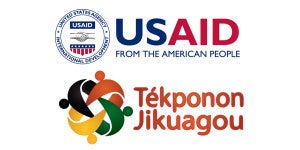Tékponon Jikuagou

Using family planning for healthy timing and spacing of births is a proven strategy to achieve this. In Sub-Saharan Africa, significant resources have been dedicated to family planning programs, but unmet need for family planning remains stubbornly high. Decades of programming have increased individuals’ knowledge but method use has made only small gains, and unmet need continues to increase.
Research shows an individual’s social network (e.g. spouse, mother-in-law, and friends) has great influence on his or her fertility desires and reproductive health. Thus, addressing the overall context in which reproductive health decisions are made could accelerate the progress towards reducing unmet need that has languished until now.
Tékponon Jikuagou was a USAID-funded five-year project that aimed to reduce unmet need for family planning in Benin through social network interventions. Formative research has found that deeply embedded social norms related to gender roles underlie unmet need for family planning. The goal of TJ was to create a social environment that enables married couples to achieve their fertility desires by fostering reflective dialogue and catalyzing discussion about social norms related to family planning, and diffusing information through formal and informal social groups, influential opinion leaders, and well-connected individuals.
Download: How-To Guide for Social Network Diffusion Approaches to Overcome Obstacles to Family Planning Use
Explore the Tékponon Jikuagou Project:
Social Network Analysis
Tékponon Jikuagou explored the power of social networks to improve health behaviors through Social Network Analysis theory and methods that explain the influence of social networks on individual behavior by mapping relationships within a community. This approach allowed researchers to identify the most connected and influential individuals within a given network and various channels through which information flows. This “social network mapping” helped explain how new ideas shared with certain individuals will permeate the community, providing critical information to accelerate behavior change.
The results of Social Network Analysis enabled Tékponon Jikuagou to implement interventions that engage not just the individuals who participate directly, but also their spouses, friends, family members, and other social contacts in a holistic way. In this sense, established social structures catalyze information-sharing and social learning. Village savings and loans groups, agricultural or commerce associations, and religious prayer/study groups are examples of the kinds of networks through which norms and information related to family planning can be diffused to create a supportive environment for method use.
Key features of Social Network Analysis used in Tékponon Jikuagou include:
- Identification of individuals, groups or organizations influential in spreading information, attitudes and ideas;
- Specification of who influences whom during the diffusion process;
- Identification of channels of communication and influence (e.g. village meetings, community radio);
- Utilization of these networks to spread innovations.
Download: Guide to Social Networks Mapping
Formative Research
Ethnographic Research:
Explored the spread of social influence and family planning information through men’s and women’s networks in two contrasting communities of low and high method use as well as low and high unmet need. Results guided the development of data collection tools for the subsequent formative research activity, social network mapping.
Social Network Census:
Created a complete social map of the two villages. All women and men of reproductive age were asked to name people upon whom they rely for material, practical, cognitive or emotional support. Perceived attitudes towards fertility and current family planning use were explored for each individual named. Sociometric analysis revealed the relative influence of social interactions on contraceptive use, and the type and density of social connections within study villages. After census-mapping was completed, in-depth interviews with select villagers representing different unmet need and social-network status further illuminated the strength and directions of observed roles and relationships.
Program Review:
A comprehensive review of existing interventions that, although not specifically “social network” interventions, included principles of social network theory. Findings guided the development of social network interventions.
Situational Analysis:
Conducted to better understand the general social context and existing networks. Results identified primary barriers to family planning use and identified types of social networks with whom to work.
Intervention Activities
What Tékponon Jikuagou has achieved to date:
The first year of Tékponon Jikuagou was dedicated to formative research in order to better understand the reasons behind unmet need for family planning—including gender, the influence of men’s and women’s social networks on their attitudes toward fertility, and other social determinants of family planning use. During year two, these research results were used to design social network interventions. Baseline data was also collected in control and experimental zones and a longitudinal study following 60 men and women was launched. Study participants will be interviewed every six months for two years to provide insight into the dynamic nature of unmet need.
What Tékponon Jikuagou is doing now:
Through our partners Plan International and CARE, participatory community mapping is conducted in each intervention village. This enables each village to identify three highly influential social groups through which to implement intervention activities. We believe these groups will facilitate rapid diffusion of information and activities throughout the larger community. Social network interventions are being rolled out in 45 intervention villages in one health department in Benin (Couffo) and will be tested for a period of 18 months. Community groups are being trained to monitor activities and use the results to improve their efforts.
Where Tékponon Jikuagou is going:
After the initial testing period in Couffo, intervention activities will be revised and implemented at scale in at least one other health department in Benin. If successful, we believe these project innovations can be adapted for settings throughout West Africa and are a potential breakthrough in reducing persistent unmet need throughout the region.
 Where We Work
Where We Work  Press Room
Press Room  FACT Project
FACT Project  Passages Project
Passages Project  Learning Collaborative
Learning Collaborative  Search All Resources
Search All Resources  Social Norms
Social Norms  Fertility Awareness Methods
Fertility Awareness Methods 